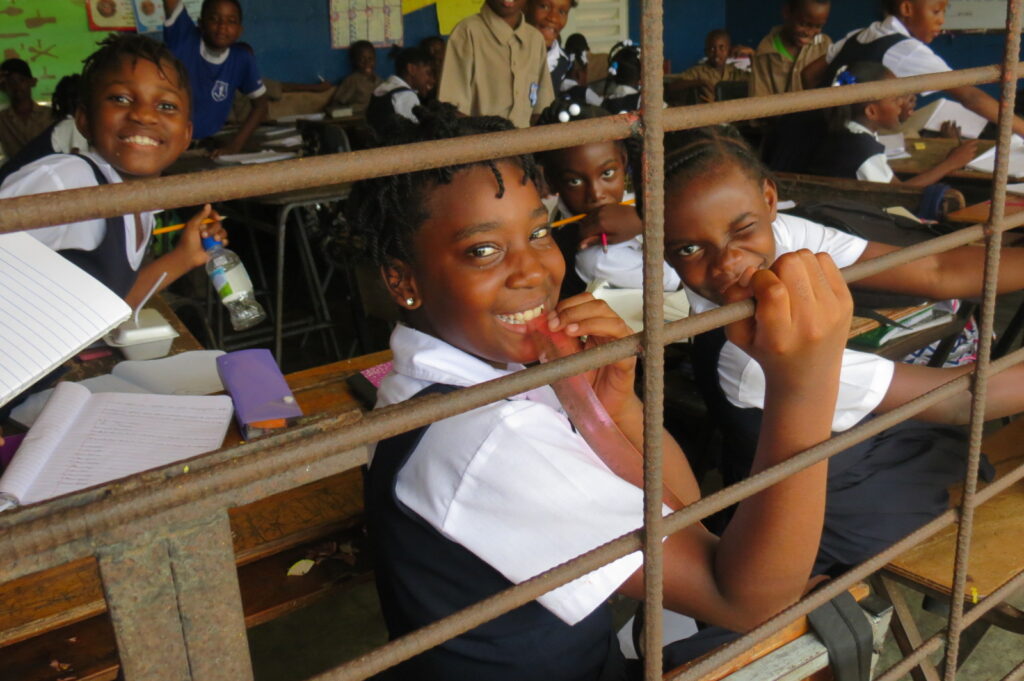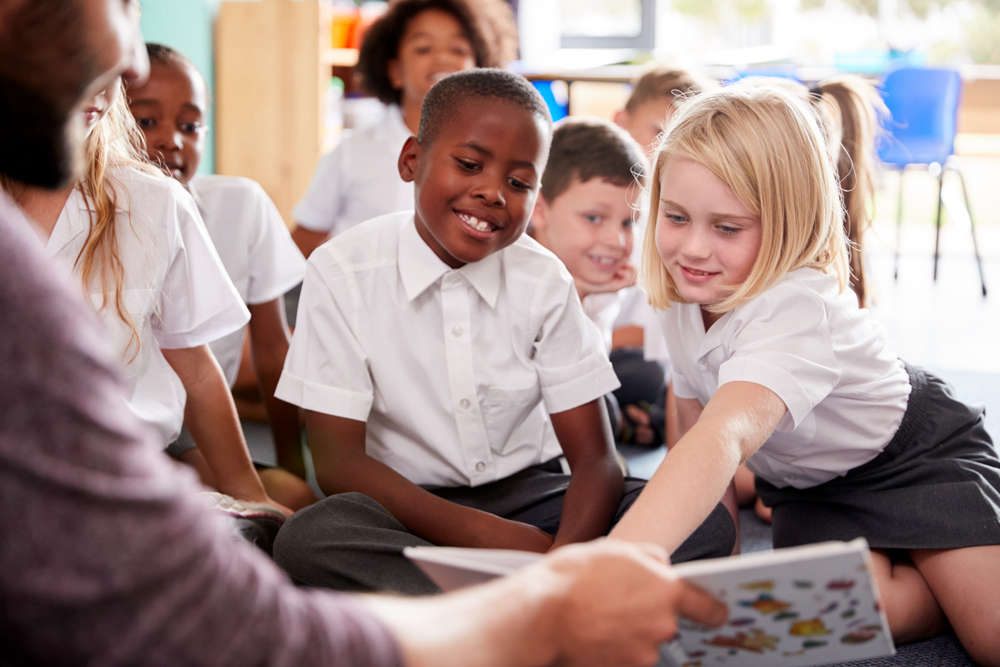Primary schools in the UK typically start between 8:45 am and 9:00 am. The school day usually runs until 3:15 pm, allowing for a 32.5-hour school week from Monday to Friday during term time. The specific start and finish times may vary by around 15 minutes among different schools. The morning routine often includes gates opening at 8:40 am, registration or assembly at 8:50 am, and the first lesson starting at 9:00 am.
These timings ensure children have enough time in the morning, travel during daylight for safety, and accommodate the changing daylight hours throughout the academic year.
Normal Primary School Hours in the UK
In the United Kingdom, children attending primary schools stick to fixed start and finish times throughout the year. While these hours are generally consistent nationwide, slight variations of around 15 minutes exist in start and finish times.
The majority of UK primary schools maintain a 32.5-hour school week, operating from 8.45 am to 3.15 pm, Monday to Friday, during term time. It’s essential to note that schools have the autonomy to determine their start times, break durations, lunch periods, and the end of the school day.
Primary School Hours in Scotland

Adding to the diversity, primary school hours in Scotland at one school may follow a unique schedule
| Lessons & School Breaks | Timings |
| Morning school starts | 9.00 am – 12.15 pm |
| Lower school morning break | 10.40 am – 10.55 am |
| Upper school morning break | 10.40 am – 10.55 am |
| Whole school lunchtime | 12.15 pm – 1.00 pm |
| Afternoon teaching | 1.00 pm – 3.00 pm |
| School day ends | 3.00 pm |
Primary School Start and Finish Times in the UK
The primary UK school system sets the start time between 8.45 to 9.00 am, with the school day concluding between 3.00 to 3.30 pm. This fixed schedule remains constant throughout the academic year. The early start time is designed to provide primary school children with enough time in the morning to prepare and arrive on time.
Additionally, this ensures that younger children travel during daylight hours for safety reasons. Both state and private primary schools maintain consistent start and finish times to accommodate the needs of young learners.
Typical Primary School Day in the UK
| Time | School Activity |
| 8:40 am | Gates open for children to come onto school grounds. Bell sounds for pupils to line up. |
| 8:50 am | Children arrive into class for registration or assembly. |
| 9:00 am | First lesson starts. |
| 10:30 am | Morning break for all pupils lasting 15 minutes. Children go outside to the playground or field. When it’s raining, classrooms are open for students to sit in. |
| 10:45 am | Morning break ends, and teaching session 2 starts up until lunchtime. |
| 11:50 am | Lunch for younger pupils, first sitting in the school dinner hall. Children then go out to the playground. |
| 12:15 pm | Lunchtime for all other school pupils in the canteen. Afterward, they play or socialize in the school playground. |
| 1:00 pm | Lunch for students finishes, and afternoon teaching starts. |
| 2:00 pm | Afternoon break for all pupils for 15 minutes in the playground. |
| 2:15 pm | Teaching starts again until 3:15 pm. |
| 3:15 pm | School teaching day ends for all pupils. Parents can pick up children outside of the school gate/grounds. |
UK Reception School Hours
Reception school hours in England and Wales may vary, but they generally follow a similar structure five days a week, Monday to Friday
Reception School Day Timings
- Morning Session: 08:50 – 11:45
- Afternoon Session: 12:45 – 15:15
- Morning Break: 10.10 – 10.25
- Lunch Break: 11.45 – 12.45
- Afternoon Break: 14.20 – 14.35
Many schools opt for shorter days (8.50 am – 12 pm or 1 pm) for the first 2-3 weeks, gradually transitioning to full-time attendance. Some schools introduce half-day attendance until half-term to allow reception children time to settle before embracing a full day of learning.
Reception School Attendance
Reception pupils, aged 4 to 5 years old, attend school for the entire academic year. While not legally required to attend reception school until the term after turning 5 years old, parents have the flexibility to enroll their child when the child is in the later months of 4 years of age. This allows for adjustment to the 5-day week, 09.00-15.00 attendance timetable.
Although not compulsory for 4-year-olds, attending reception school provides a gentle introduction to school life. Parents hold the authority in deciding whether to keep a 4-year-old off school until their 5th birthday.
Typically, the reception year follows nursery school and precedes year one of primary school in England & Wales. In Scotland, the reception year is termed P1, allowing parents to send their children to a local school from the age of 4.
The Starting Age of Primary Schools in the UK
In the United Kingdom, students usually commence their primary school journey around the ages of 4 to 5 years old. This intentional early start serves a dual purpose: laying the foundation for essential skills and ensuring that children are of an age where they can effectively manage the structured timetable of school life.
International Comparisons

Countries with a similar starting age for school, such as Switzerland, The Netherlands, Greece, and Australia, recognize the importance of commencing education at an early stage.
However, it’s noteworthy that the starting age for formal education varies worldwide. In France and Hungary, children begin school around the age of 3, while in Canada, China, Egypt, Germany, India, Italy, Japan, Mexico, Norway, and the UAE, the starting age is approximately 6.
In Finland, South Africa, Singapore, and Sweden, children commence school around the age of 7.
FAQ
Is primary school free in the UK?
Yes, primary school education is generally free in the UK for residents. It’s an essential part of the education system and accessible to all.
Can a foreign child go to public school in the UK?
Yes, foreign children can attend public schools in the UK. However, it’s essential to check the specific admission processes with the desired school.
Is school free for 3-year-olds in the UK?
While primary school typically starts around age 4-5, some 3-year-olds may be eligible for free early education hours. Check with local authorities for details.
Is it illegal for a child not to go to school in the UK?
Yes, it’s a legal requirement for children in the UK to receive education. Parents can choose homeschooling or traditional schooling to meet this obligation.
Are UK grammar schools free?
Yes, grammar schools in the UK are generally state-funded and do not charge tuition fees. Admission is usually based on academic performance.
What is the minimum age for school admission in the UK?
Children in the UK usually start primary school at the age of 4 or 5. The exact age varies, but it’s typically when they turn 5 by August 31st.
Is education free for foreigners in the UK?
Yes, education is often free for foreign children in the UK. Public schools may have specific admission processes, so it’s advisable to check with the school directly.
Is child education free in the UK for international students?
Public school education in the UK is generally not free for international students. Tuition fees apply, and these vary between schools. Scholarships may be available.
Can a child attend a school in the UK on a visitor visa?
It’s uncommon for a child to attend a school in the UK on a visitor visa. Student visas are typically required for international students. Check with the school for visa-related guidance.
Final thoughts
In summary, the starting times of UK primary schools, usually between 8:45 am and 9:00 am, are carefully crafted to foster a secure and effective learning atmosphere. These timeframes allow children sufficient preparation time, ensure safe travel during daylight, and adjust to changing daylight hours throughout the seasons.
While exact start and end times may differ slightly, the shared objective is to establish routines that prioritize the well-being and preparedness of students.

